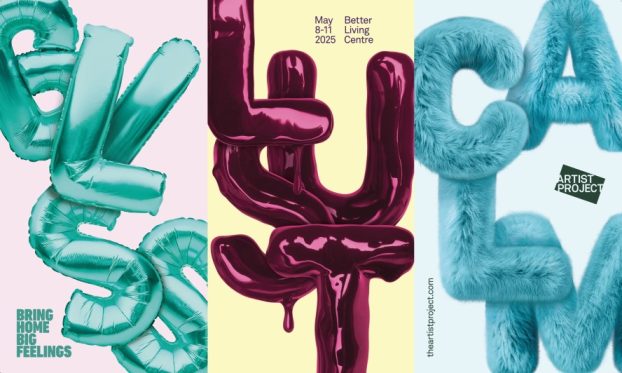When Buckley’s Mixture starts targetting the 500,000-strong Chinese-Canadian community in late fall with a multimedia campaign, it is a good bet it will have little difficulty tasting success.
While the successful, seven-year English campaign for Mississauga, Ont.-based W.K. Buckley, which makes the bitter cough remedy, has had to convince consumers to buy something that tastes bad, Buckley is counting on a well-established Chinese belief that something that tastes awful must be effective to drive sales in the community.
Patrick Fong, president and creative director of Buckley’s Chinese-language agency Can-Asian Advertising of Toronto, says a bitter taste as the measure of the strength of a product’s medicinal abilities is so ingrained in Chinese culture, there is a four-character Chinese word which translated means, ‘Anything that is effective will bring some awful taste.’
Fong says the saying is used almost daily in Chinese life to comment on everything from medicine to the amount of work required to complete a task.
David Rieger, Buckley national sales and marketing manager, says since the start of the ‘It tastes awful and it works’ campaign in 1987, by then agency Ambrose Carr Linton Kelly, Toronto, the company’s marketshare in Ontario has grown to 8% from 2.2%, and to as much as 12% in other provinces.
According to A.C. Nielsen, Buckley’s Mixture, the flagship brand for the family-owned, 75-year-old Canadian company, has also been the country’s No. 1 cough remedy sku for the past three years.
Be honest
Rieger says the advertising strategy developed from the company’s decision to be honest about the taste of the cough remedy.
Ambrose Carr Linton Kelly came up with the slogan, ‘It tastes awful and it works,’ and the idea to use Frank Buckley, president of the company and son of the founder, William Knapp Buckley, as spokesperson.
The creator of that strategy, Peter Byrne, is now a principal in Buckley’s current agency, Bensimon/Byrne of Toronto.
French-language advertising is handled by J-P Martel & Associates of Montreal.
The decision by Buckley to target the Chinese-Canadian community was the result of two years of research into new Canadian markets.
Rieger says the company wanted to build market share, but the criteria were not only a sizeable new target, such as the Asian community, but a culture whose values and beliefs would support an over-the-counter pharmaceutical product such as Buckley’s Mixture.
‘We have our strongest [English-speaking] markets outside of Ontario,’ he says.
‘We asked ourselves why we don’t do as well in Ontario?
‘Is it because people in Ontario tend to be a little more sophisticated and are not buying into the elements that make Buckley’s so successful?
‘Or is it because the ethnic population is heavy in Ontario and we’re not penetrating those markets?
‘We’re looking at the Chinese-language campaign as a possible solution, and to grow the market specifically in Ontario.’
The company turned to an agency specializing in advertising to the Chinese community to deal with its concerns about whether new Chinese-Canadians could be reached by its advertising efforts, and if Buckley’s Mixture was a product they would be willing to switch to.
Buckley also felt the cough remedy would not be competing only against other Canadian products, but with traditional Chinese herbal products.
Fong casts aside the notion that Chinese medications always mean herbal or homemade remedies.
‘Mainstream over-the-counter medications can be successfully marketed to the Chinese community because buying them is a well-established behavior,’ he says.
‘In the case of cough syrups, there are some existing bottled forms of cough syrup that are consumed by many Chinese every day to keep their throats feeling good. It’s like maintenance.
‘But, then there are stronger cough syrups that people will use when they have a serious cough.
‘What [Can-Asian is] trying to do for Buckley’s is position it as the ultimate one. It tastes awful, but it is not as awful as your cough.’
Rieger says research by Buckley and Can-Asian suggested the same strategy used in English- and French-Canada and its international markets would also appeal to the Chinese community.
‘The elements of Buckley’s that seem to appeal are the strength of the product, the effectiveness, the naturalness of the product and the company’s history,’ he says.
‘A 75-year tradition means a lot to the Chinese community.
‘Also, in terms of a company spokesperson, an elder spokesperson is perceived [by the Chinese] to be a lot more knowledgeable than someone younger.’
The campaign, which kicks off the week of Nov. 7, will be a mix of radio, tv, print and point-of-purchase advertising.
In the radio and tv spots, the voice of Frank Buckley will be replaced in the voiceover with that of another mature male.
Slogan
The campaign slogan and headline for print is, ‘It tastes bitter, but it is effective medicine.’
Although the Chinese characters deliver the story best, the English translation of the advertising message is roughly:
‘If you cough, you should immediately take Buckley’s, the medicine that tastes bitter, but is effective for your cough. I must mention first that Buckley’s really tastes awful, but it is not the most awful. If you cannot stop your cough, then your coughing feels more awful.’
Visuals for the 15-second tv spot begin with the super, ‘Stop Coughing,’ followed by the Buckley logo, which gives way to a bottle of Buckley’s Mixture moving onto the screen from right to left, and ends with the theme-line, ‘It tastes bitter, but it is effective medicine.’
The commercial has been tested with Chinese viewers, and Rieger says they found it amusing, and, because of the Chinese belief in a bitter taste for an effective cure, immediately understood the message.
The concentration of the primary Chinese communities are in Toronto (280,000) and Vancouver (190,000), which, he says, allows the company to reach the target group efficiently without spending a lot of money.
The tv spot will be seen on cfmt-tv, the Toronto-based multilingual tv channel; print advertising will appear in two of the four Chinese-language newspapers, the Ming Pao Daily News, which sells in Toronto, Montreal and Ottawa, and the Sing Tao Chinese Daily, with offices in Toronto, Vancouver and Calgary.
As well, a 30-second radio spot will air on the Toronto-based Canadian Chinese Broadcasting Corporation.
Distribution strategy
Buckley also plans to make some changes in its distribution methods to accommodate the Chinese market.
Currently, its products are found in food stores and pharmacies, but the company is working with wholesalers to try to get into small Chinese grocery stores.
This fall, an employee of Chinese origin will be hired as a sales representative to service the targetted stores, talk about Buckley’s advertising efforts, and provide point-of-purchase material.
Rieger says Buckley is also a participant in the Welcome to Canada Pack, a sampling program that targets all new Canadians.
‘[The pack] has a strong success rate,’ he says.
‘Repeat purchases from this package is about 80%. You can introduce your product to new families that come here, unfamiliar with the language, and educate them that cough syrup in Canada is Buckley’s.’






















